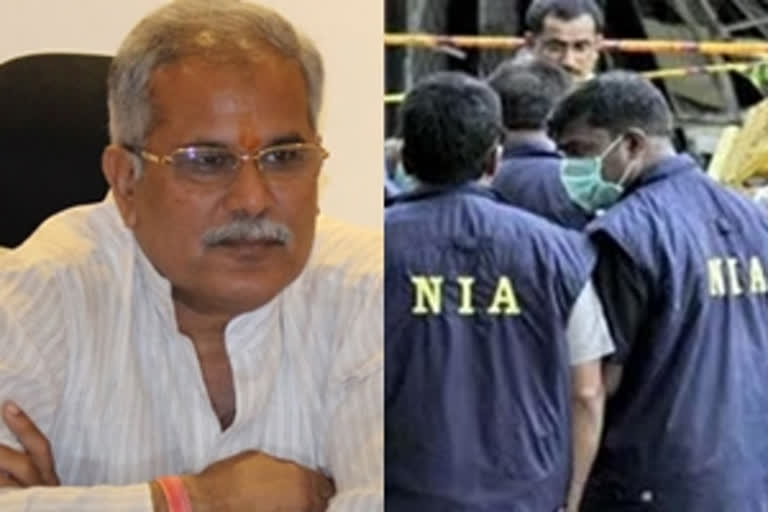New Delhi:The Supreme Court registry has issued summons to the Centre on a suit filed by the Congress-led Chhattisgarh dispensation seeking to declare the UPA-1 era National Investigation Agency (NIA) Act as unconstitutional and arbitrary on the ground that it affects the state's sovereignty and confers unbridled power on the central government.
The registry has issued summons to the Centre through Attorney General K K Venugopal on the suit filed by the Chhattisgarh government under Article 131 of the Constitution.
Article 131 of the Constitution empowers a state to move the Supreme Court directly in matters of dispute with the Centre or any other state. Chhattisgarh is the first state to challenge the Act.
"Whereas the above-named Plaintiff (Chhattisgarh) has on January 11, 2020 instituted a suit in this court against you praying for a decree in terms of the prayers made in the plaint, you are hereby required to cause an appearance to be entered for you in the registry of the court within twenty-eight days from the service upon you of this summons, exclusive of the day of such service," the summons issued under Order XXVII, rule-I said.
It further said, "...you are summoned to appear before this court by an advocate-on-record of the court to answer the plaintiff's claim on the day the case is set down for hearing upon which date you must be prepared to produce all your witnesses and all documents in your possession or power upon which you intend to rely in support of your case."
After the Centre files reply on the suit and enter an appearance, the Supreme Court rules under Order XXVII, Rule-8 provides that the matter will be listed before the Chamber judge, who in turn can issue directions, including for pleadings, admission of documents and inspections.
After completion of pleadings, the matter will be listed before a regular bench of the apex court.
The then Manmohan Singh government had come out with the law in the aftermath of the November 26, 2008, Mumbai attack, when senior Congress leader P Chidambaram was the Union home minister.
The legislation provides the NIA concurrent jurisdiction to probe terror attacks in any part of the country without any specific permission from states and in the last one decade, it has been involved in the investigation of all such cases.
The filing of petition assumes importance as the Congress government in Chhattisgarh has challenged the law on the ground that it was for the police to investigate scheduled offences in the state.
